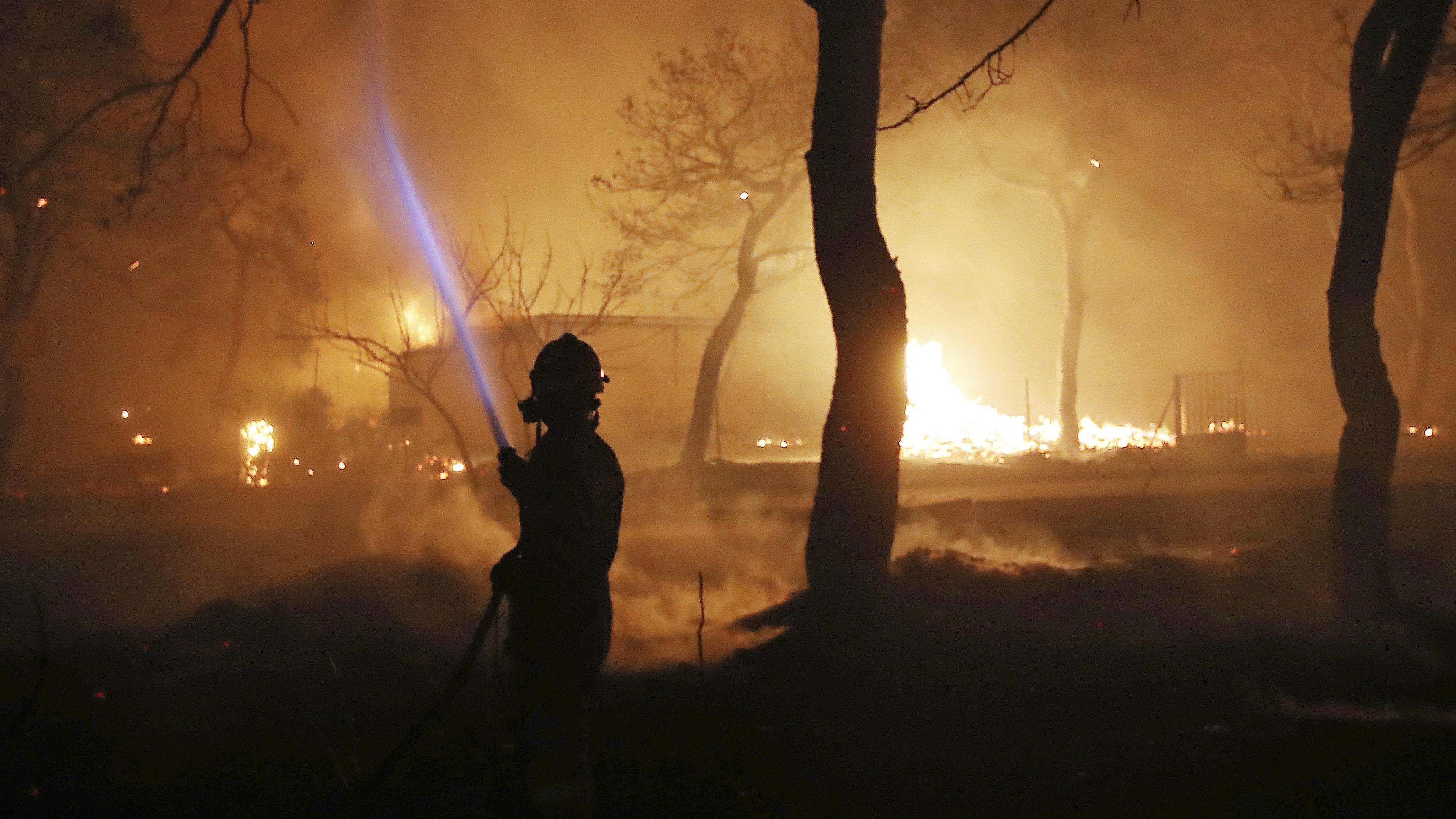
RESCUE crews are searching through charred homes and cars for the missing after wildfires devastated seaside areas near the Greek capital, killing at least 79 people and sending thousands fleeing.
There was no official indication how many people might be missing, and some people took to social media and Greek television stations with appeals for information on their loved ones.
The death toll is expected to increase as crews search more of areas affected by the fires.
More than 280 firefighters are still in the area north east of Athens, dousing the remaining flames to prevent flare-ups.
Another 200 firefighters are tackling a second forest fire west of Athens, where local authorities pre-emptively evacuated three nearby communities overnight, according to the fire department.
Fuelled by 50mph winds that frequently changed direction, the fires spread at speeds that surprised many, trapping hundreds on beaches and cutting off escape routes.
All the casualties appeared to be from the fire near Rafina, a popular seaside area that is a mix of permanent residences and holiday homes. The blaze broke out on Monday afternoon during a hot, dry spell but the cause was not immediately clear.
Aerial photos showed charred swathes of forest and homes.
Prime minister Alexis Tsipras declared three days of national mourning. Apart from the dead, who included children, hospitals treated 187 people, most for burns, with 10 listed in serious condition.
Twenty-six of the dead were found after dawn on Tuesday, huddled in a compound near the sea in the community of Mati, the worst-hit area near Rafina, about 30 miles west of Athens.
Red Cross rescuers said they appeared to be families or groups of friends because they were found hugging in groups of threes and fours.
“We couldn’t see any fire. The fire came suddenly. There was so much wind, we didn’t realise how it happened,” said Anna Kiriazova, 56, who survived with her husband by shutting themselves in their house instead of trying to flee through the flames.
She said they doused their house in the Mati area, near Rafina, with water from a garden hose, and credited the fact that their window frames were metal instead of wood for their home being spared.
“We shut ourselves in the house, we closed the shutters, we had towels over our faces. The inferno lasted about an hour. I have no words to describe what we lived through.”
Her 65-year-old husband, Theodoros Christopoulos, said the couple decided to take shelter in their home because the narrow roads outside were jammed with cars.
“There was a great panic because the whole street was blocked by cars,” he said. “Shouting, hysteria, they could see the fire was coming with the wind. It already smelled a lot, the sky was black overhead and in no time at all the fire was here.”
Hundreds of others abandoned cars and fled to nearby beaches, from where they were evacuated hours later by coastguard and private boats. Dozens swam out to sea despite rough weather to escape the intense heat and choking smoke.

Enjoy the convenience of having The Sunday Post delivered as a digital ePaper straight to your smartphone, tablet or computer.
Subscribe for only £5.49 a month and enjoy all the benefits of the printed paper as a digital replica.
Subscribe